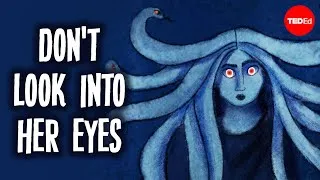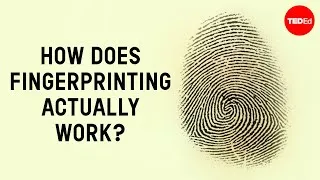How a single-celled organism almost wiped out life on Earth - Anusuya Willis
2,728,892 views ・ 2016-08-11
请双击下面的英文字幕来播放视频。
翻译人员: Yuyang Zhao
校对人员: Cissy Yun
00:08
There's an organism
that changed the world.
0
8019
2358
这是一个改变了世界的生物
00:10
It caused both the first mass extinction
in Earth's history
1
10377
3301
它导致了地球历史上第一次大规模的灭绝
00:13
and also paved the way for complex life.
2
13678
2869
但也为之后的复杂生命铺平了道路
00:16
How?
3
16547
971
怎么做到的呢?
00:17
By sending the first free oxygen
molecules into our atmosphere,
4
17518
4152
它们把第一个自由氧分子送到我们的大气层中
00:21
and they did all this
as single-celled life forms.
5
21670
3469
并且,它们是以单细胞的生命形态
来完成这一切的
00:25
They're cyanobacteria,
6
25139
1640
它们就是蓝藻
00:26
and the story of these simple organisms
7
26779
1897
这些简单的生物
00:28
that don't even have nuclei
or any other organelles
8
28676
2877
没有细胞核和其它任何细胞器
而它们的故事
00:31
is a pivotal chapter
in the story of life on Earth.
9
31553
3306
正是地球上生命的故事的一个关键章节
00:34
Earth's atmosphere wasn't always
the oxygen-rich mixture we breathe today.
10
34859
4630
地球的大气层并非一直充满着
我们现在呼吸的富氧的混合物
00:39
3.5 billion years ago, the atmosphere
was mostly nitrogen,
11
39489
3590
3.5亿年以前,大气层中的大多是氮气,
00:43
carbon dioxide,
12
43079
1132
二氧化碳
00:44
and methane.
13
44211
1299
和甲烷
00:45
Almost all oxygen was locked up
in molecules like water,
14
45510
3152
几乎所有的氧气都被锁在像水一样的分子里
00:48
not floating around in the air.
15
48662
1937
并不是在空气中飘着
00:50
The oceans were populated by
anaerobic microbes.
16
50599
2861
海洋被厌氧微生物填充。
00:53
Those are simple, unicellular life forms
that thrive without oxygen
17
53460
4041
它们是在没有氧气的环境中茁壮成长的,
以单细胞形式存在的简单生物。
00:57
and get energy by scavenging
what molecules they find.
18
57501
3129
它们从它们找到的被净化的分子中汲取能力。
01:00
But somewhere between
2.5 and 3.5 billion years ago,
19
60630
3842
但在2.5到3.5亿年前
01:04
one of these microbial species,
20
64472
2038
这类微生物群中的一个
01:06
probably floating
on the surface of the ocean,
21
66510
2320
可能正飘在海洋表面,
01:08
evolved a new ability: photosynthesis.
22
68830
3181
进化出了一种新的能力:光合作用
01:12
Structures in their cell membrane
could harness the energy from sunlight
23
72011
3581
它们细胞膜中的结构可以利用阳光中的能量
01:15
to turn carbon dioxide and water
into oxygen gas and sugars,
24
75592
4709
将二氧化碳和水转化成氧气和糖分,
01:20
which they could use for energy.
25
80301
1691
并作为它们的能源。
01:21
Those organisms were the ancestors
of what we now call cyanobacteria.
26
81992
4889
这些生物就是我们现在说的蓝藻的祖先
01:26
Their bluish color comes from
the blue-green pigments
27
86881
2532
它们的蓝色来源于蓝绿色素
01:29
that capture the sunlight they need.
28
89413
2181
可用于捕捉它们所需要的阳光
01:31
Photosynthesis gave those ancient bacteria
a huge advantage over other species.
29
91594
4498
光合作用使这些古老的细菌
比别的物种有更大的优势
01:36
They could now produce their own energy
30
96092
1900
它们可以从基本上无尽的原材料中
01:37
from an almost endless supply
of raw ingredients,
31
97992
2999
生产它们自己的能源
01:40
so their populations exploded
32
100991
2191
所以它们的数量剧增
01:43
and they started polluting the atmosphere
with a new waste product: oxygen.
33
103182
4370
并开始向大气中排出一种新型废弃物:氧气
01:47
At first, the trickle of extra oxygen was
soaked up by chemical reactions with iron
34
107552
4535
一开始,流出的额外的氧气在和铁的化学反应
01:52
or decomposing cells,
35
112087
1827
或细胞分解中被吸收了
01:53
but after a few hundred million years,
36
113914
1808
但在数百万年之后,
01:55
the cyanobacteria were producing oxygen
faster than it could be absorbed,
37
115722
3950
蓝藻生产氧气的速度比它们吸收的要快
01:59
and the gas started building up
in the atmosphere.
38
119672
2361
气体开始在大气层中聚集
02:02
That was a big problem for the rest
of Earth's inhabitants.
39
122033
2946
这对地球上的其它生物来说是个大问题
02:04
Oxygen-rich air
was actually toxic to them.
40
124979
2764
事实上,富氧的空气对它们来说是有毒的
02:07
The result?
41
127743
888
结果呢?
02:08
About 2.5 billion years ago was a mass
extinction of virtually all life on Earth,
42
128631
5340
2.5亿年前是一个地球上所有生命的大灭绝。
02:13
which barely spared the cyanobacteria.
43
133971
2302
但几乎没有影响到蓝藻。
02:16
Geologists call this
the Great Oxygenation Event,
44
136273
3080
地质学家吧这个叫做大氧化事件,
02:19
or even the Oxygen Catastrophe.
45
139353
2509
甚至氧气大灾难。
02:21
That wasn't the only problem.
46
141862
1452
这不是仅有的问题
02:23
Methane had been acting as a potent
greenhouse gas that kept the Earth warm,
47
143314
3600
甲烷一直是使地球温暖的强效温室气体。
02:26
but now, the extra oxygen reacted with
methane to form carbon dioxide and water,
48
146914
6011
但现在,多余的氧气和甲烷反应
产生二氧化碳和水,
02:32
which don't trap as much heat.
49
152925
1740
而不会留住热量
02:34
The thinner atmospheric blanket
50
154665
1629
越来越薄的大气层
02:36
caused Earth's first,
and possibly longest, ice age,
51
156294
3650
导致了地球上第一次,也可能是最长的一次冰期。
02:39
the Huronian Glaciation.
52
159944
1821
休伦冰期
02:41
The planet was basically
one giant snowball
53
161765
2131
星球基本上是一个大雪球
02:43
for several hundred million years.
54
163896
2227
并持续了数亿年。
02:46
Eventually, life adjusted.
55
166123
1922
最终,生命适应了。
02:48
Aerobic organisms,
which can use oxygen for energy,
56
168045
3320
需氧生物,可以将氧气作为能源,
02:51
started sopping up some of the excess
gas in the atmosphere.
57
171365
3532
开始吸收大气中一些多余的气体。
02:54
The oxygen concentration rose and fell
58
174897
2118
氧气的浓度又上又下
02:57
until eventually it reached
the approximate 21% we have today.
59
177015
4080
直到最终达到了我们今天的浓度也就是大约21%。
03:01
And being able to use
the chemical energy in oxygen
60
181095
2780
可以利用氧气中的化学能量
03:03
gave organisms the boost they needed
to diversify
61
183875
2951
给了这些生物它们需要的刺激来实现多元化。
03:06
and evolve more complex forms.
62
186826
2389
并进化出更复杂的形态。
03:09
Cyanobacteria had a part
to play in that story, too.
63
189215
3202
蓝藻在这一段故事中也有一个角色。
03:12
Hundreds of millions of years ago,
64
192417
1778
几亿年前,
03:14
some other prehistoric microbe
swallowed a cyanobacterium whole
65
194195
4543
其它一些史前微生物吞噬了蓝藻
03:18
in a process called endosymbiosis.
66
198738
2818
这整个过程称为内共生。
03:21
In doing so, that microbe acquired
its own internal photosynthesis factory.
67
201556
4480
为了这样做,那个微生物必须拥有
自己的内部光合作用工厂。
03:26
This was the ancestor of plant cells.
68
206036
2970
这就是植物细胞的祖先
03:29
And cyanobacteria became chloroplasts,
69
209006
3130
蓝藻变成了叶绿体,
03:32
the organelles that carry out
photosynthesis today.
70
212136
3192
就是今天那个可以光合作用的细胞器。
03:35
Cyanobacteria are still around
in almost every environment on Earth:
71
215328
4139
蓝藻还在地球上的几乎每一个环境:
03:39
oceans,
72
219467
840
海洋
03:40
fresh water,
73
220307
898
淡水
03:41
soil,
74
221205
811
土地
03:42
antarctic rocks,
75
222016
1151
南极石,
03:43
sloth fur.
76
223167
1192
树懒毛。
03:44
They still pump oxygen
into the atmosphere,
77
224359
2039
它们依然在向大气中泵出氧气,
03:46
and they also pull nitrogen out to
fertilize the plants they helped create.
78
226398
4639
它们也依然将氮气析出,
以给它们创造的植物施肥。
03:51
We wouldn't recognize life on Earth
without them.
79
231037
2180
如果不是它们,我们不会认识到生命。
03:53
But also thanks to them,
80
233217
1220
但也要谢谢它们,
03:54
we almost didn't have
life on Earth at all.
81
234437
2161
地球上差点就没有生命了。
New videos
Original video on YouTube.com
关于本网站
这个网站将向你介绍对学习英语有用的YouTube视频。你将看到来自世界各地的一流教师教授的英语课程。双击每个视频页面上显示的英文字幕,即可从那里播放视频。字幕会随着视频的播放而同步滚动。如果你有任何意见或要求,请使用此联系表与我们联系。







